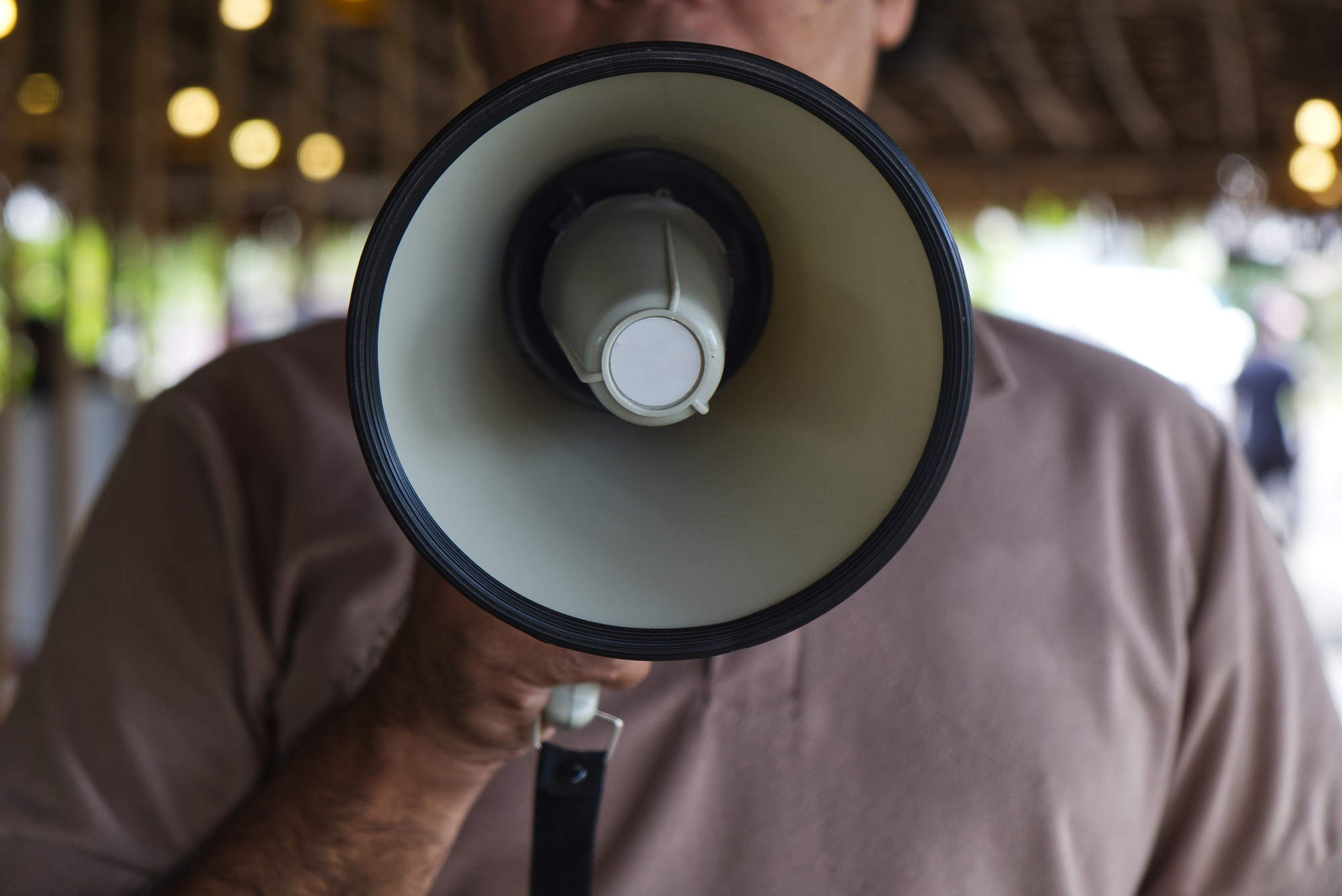Media Criticism and Healthy Skepticism

In a recent article in The Conversation, Professor Michael Socolow argues that distrust in the media is, in fact, valuable for a democracy. To make his argument, he presents historical cases of politicians criticizing media outlets, along with examples of journalists and their publishers damaging their own credibility by knowingly putting out materials that were manipulated, fabricated, or outright false. Socolow’s point seems to be two-fold: that political figures encourage citizens to distrust the media, and that journalists may invite this by engaging in unscrupulous behavior. He then notes that only in authoritarian regimes would we see citizens unwilling to express skepticism towards the media. As a result, Socolow concludes, “measured skepticism can be healthy and media criticism comprises an essential component of media literacy – and a vibrant democracy.”
Socolow is correct but in an uninteresting way. Frankly, I am unsure who he is arguing against. Few, if any, think we ought to trust every story in every outlet. But, simultaneously, we should not think there is monolithic perpetually untrustworthy “media.” Socolow gestures towards this middle-ground when he mentions “measured skepticism” in his conclusion. Yet he fails to give any account of what this looks like.
Further, I worry that Socolow’s discussion implicitly sends the message that any criticism is legitimate and healthy. The article opens by noting that being “anti-media” has become part of the Republican political identity, and mentions media criticism by politicians like Donald Trump. But surely some of the criticisms are irresponsible. Socolow also discusses Lyndon Johnson challenging accurate reporting on the Vietnam war. He follows these clearly truth-indifferent and politically-motivated media criticisms with cases of fraudulent behavior by media outlets, such as Dateline rigging GM trucks with explosives during a story on potential safety hazards.
However, there is no differentiation between the bad-faith criticisms and criticisms driven by legitimate misdeeds by members of the media. Socolow treats both as explaining why people might distrust the media, without any explanation of whether we ought to accept both sorts of critique as legitimate.
I think it is worthwhile to spend time considering what measured or healthy skepticism looks like. I cannot give a full account here; that’s a philosophical project on its own. Nonetheless, I hope that some preliminary reflection will help us determine what does and does not contribute to democratic society.
Aristotle famously argued that the virtues – admirable character and intellectual traits, the possession of which makes for an ideal person – are a middle ground or mean between an extreme of excess and an extreme of deficiency. For instance, most would say bravery is a virtue. Suppose that, after initially hearing of Russia’s invasion of Ukraine that I, with no military training or combat experience, bought an AR-15 and booked a flight to Europe to travel to the front lines. We would not call this behavior brave. I am showing an excess of what bravery requires, being too willing to risk my safety to fight against injustice, which crosses the line into being reckless. Conversely, one might fall short of bravery through cowardice. Standing by as an old woman’s purse is stolen because I was afraid of what might happen to me, shows a deficiency in my willingness to face danger. We might apply the same analysis to skepticism. One may be too skeptical, or not skeptical enough. The virtue of healthy skepticism is in the middle of these extremes.
We might start our discussion of healthy skepticism by asking: what does it mean to be skeptical? To be skeptical of something is to doubt it. But what of being skeptical in general? A skeptical person tends to doubt and scrutinize something before accepting it as true.
With Aristotle’s view in hand, we can then say that a healthy skeptic submits claims to an appropriate level of doubt before accepting them. And to determine what an “appropriate” level of doubt is, we may need to first consider what an inappropriate amount looks like.
In Meditations on First Philosophy, Rene Descartes engaged in a kind of skepticism some now call methodological doubt. Descartes attempted to systematically question each of his beliefs, and rejected all those which he was capable of doubting. Indeed, Descrates goes so far as to (temporarily) reject the belief that he had hands or even a body. This is because he could doubt these things – perhaps he was a sleeping spirit who was only dreaming that he had a body. In Descartes’ view, the fact that he could doubt a belief undermined his justification for it.
Philosophers, at least until Gettier, viewed knowledge as a justified true belief. Justified means that the belief has good support – there’s strong evidence behind it, like data or a logical proof. Belief is accepting something as true. Further, something is true when it obtains in reality.
Of course, Descartes skepticism seems extreme. The mere fact that something could possibly be wrong does not mean that belief in it is unjustified. As a result, his skepticism appears exaggerated. This would be like refusing to trust any story in any media outlet, simply because members of the media have at some point lied. It is true that any given story could be fabricated; but that does not mean we should treat all of them as fabricated.
What is the appropriate level of scrutiny to apply stories in the news if Cartesian doubt goes too far?
Ultimately, we have to consider which factors could cause or motivate a media outlet to run a false or inaccurate story (or even refuse to cover a particular story), and weigh those against considerations that support the veracity of the reporting.
When criticizing media in the U.S., we have to keep in mind that, with a few exceptions, media outlets are privately owned. Their goal is to attract viewers, listeners, and/or readers willing to pay a subscription or view an ad in order to make money. This may sometimes affect their coverage. They may be less inclined to report on the misdeeds of their advertisers. Further, to attract a specific demographic, the news outlet may adapt their coverage and tone to cater to a particular kind of audience. They may also pursue a “scoop” – breaking a unique story first might increase viewership in the future. (Hence why Dateline would be willing to explode GM trucks, despite this angering a potential advertiser.) Each of these factors may shape what outlets are willing to report and the slant of their coverage.
Further still, reports are often created by individuals or a small team. These individuals have private interests – regularly writing reports which drive audience engagement will advance their career. They may have personal connections to the subject matter which bias their reporting in some way. A healthy skeptic understands that the news is, ultimately, produced by people not published out of the ether. We must keep in mind what both individuals and organizations will gain from our acceptance of a particular story before we place our trust in their reports.
So, what reasons would weigh in favor of trusting a report in the media?
I cannot give a comprehensive list here, instead I can offer a few criteria. First, a consensus in reporting on an event provides further justification for accepting a story. The more outlets covering the same story, and deriving similar conclusions about it, the more justified we are in accepting it. Second, the extent to which reporting is consistent with other facts and accounts affects the justification of our believing it. The more easily all the information fits together, the more likely it is all to be true. An aberrant report which claims other commonly reported stories are false is itself likely to be false. Third, reports which are falsifiable are more trustworthy than those which are not. If a media outlet claims that something which could be proven wrong is true, then they are putting their credibility on the line if their report is false. This risk indicates a certain confidence in the judgment. Further, claims which are not falsifiable are typically not worthy of acceptance; the fact that you cannot prove with certainty there isn’t a secret shadow government does not show that we should believe that such a government does indeed exist.
A healthy skepticism towards media outlets, overall, involves a complex set of attitudes and behaviors. To be a healthy skeptic, one should regularly ask who benefits and how. Who stands to gain from presenting the particular story in this particular way? Whose interests are served by remaining silent about a particular event.
Further, a healthy skeptic remembers that all private media outlets are for-profit organizations that rely on advertising, and that even public media companies are often funded by governments. These interests shape their coverage. Someone who adopts an attitude of skepticism – an attitude indeed vital to a well-functioning democracy – does not view “the media” as a monolithic entity, nor do they view the same few outlets as unerringly trustworthy. Instead, they consider each story for what it is: an act of discretion – a specific report published for an intentional reason from a particular point of view. And perhaps most importantly, a healthy skeptic will submit criticisms of the media by public officials and authority figures to the same demanding level of scrutiny.




